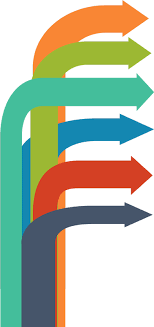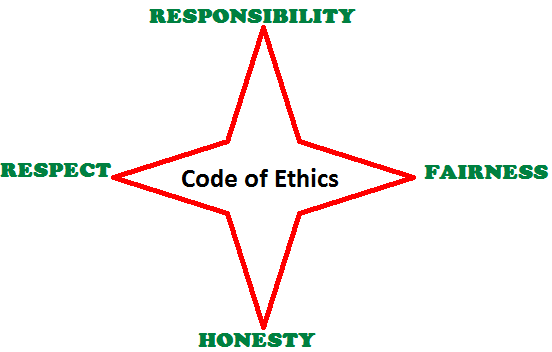
28 Jan Personnel Ethics and Sustainability on Projects

Personal Ethics
Blg: The Evolution of Ethics. The evolution of ethical thinking from the Ancient Greeks to Post Modernism.
WP: Ethics and Leadership. A strong ethical framework is vital for personal success and underpins your ability to lead. Ideally this framework will be supported by the organization’s governance structures.
Art: Ethical Leadership. The crucial role leaders play in establishing the ethical culture of their organizations – ethical standards are set at the top!
Blg: Practical Ethics. Blind trust in the ethical standards of others is dangerous. The role of ethical leaders is first to set the ethical standards, and then implement systems that require their followers to conform.
Blg: Practical Ethics 2. The ethical standards of an organization are set by the actions of its leaders (not what they say). What they do sets the ceiling and what they tolerate in others the floor.
Blg: Making Ethics Effective. The need for surveillance and enforcement to support ethical standards.
Download the PMI Code of Ethics and Professional Conduct
Ethical Decision Making
Every decision you make has an ethical component. The PMI Ethical Decision-Making Framework (EDMF) describes steps that can be used to guide you through a process to make a decision when confronted with an ethical dilemma. Download the PMI Ethical Decision-Making Framework
Blg: Tired workers lose their ethics. Tired people are more grumpy, absent minded and clumsy than normal and new research suggests that they are also more likely to cheat!
Art: The Problem with Paradox. Virtually every management system generates a series of paradox that cannot be removed because both of the factors that create the paradox are important, but at the same time contradict each other. This article discusses how to live with paradox.
Professionalism
The five dimensions of professionalism are:
- Knowledge of project management practice as defined in the PMBOK® Guide and other standards. The focus of Section 2 and Section 3 of the PMKI.
- Qualifications, achieving the appropriate level of qualification for your role, see: PM Training & Qualifications.
- Competence to undertake and deliver assignments successfully. The key is knowing your level of competence and then seeking to improve, see Competencies & Interpersonal Skills.
- Commitment to continuing professional development for both yourself and the overall profession.
- Accountability for your actions and decisions based on the PMI Code of Ethics and Professional Conduct. The focus of this page.
Blg: The Origins of Integrity. Integrity as we know it today stands for soundness of moral principle and character – uprightness – honesty; but there’s more.
Art: Ethics, Integrity and Governance. The mutual interdependence between ethics, personal integrity and the governance of organizations – does an organization have ethical responsibilities?
Blg: The moral underpinnings of good policy. The relationship between morals, ethics, values, principles and policies.
Art: Professional Project Management. What does professional project management look like? This article looks at the concept of a formal profession and what this means for project management.
Sustainability
Art: Sustainable project management. Using the UN Sustainable Development Goals, and ‘Green Project Management’ to enhance your project’s ‘triple bottom line’.
A manifesto for responsible project management
The manifesto is a call for project professionals to expand their roles by advocating for beneficial change It aims to help facilitate conversations that value
- Conscious awareness over ignorance of project impacts
- Regenerative and circular approaches over consumption, damage and waste
- Collaboration and engagement over competition and control.
While we recognize that projects programs and portfolios need to deliver outputs, outcomes and benefits, we believe that unless we all look after local communities, society and the natural world, projects will contribute to the destruction of humanity The signatories to this Manifesto are developing and applying ways of managing projects to realize social, environmental and economic value without preference.
10 Driving Principles
- Purpose. Identify and understand the intentions underpinning projects from different perspectives
- Awareness. Raise cognizance of potential impacts and unintended consequences of projects
- Engagement. Involve a wide range of stakeholders in decision making and promote common interests
- Curiosity. Be inquisitive, uncover and address ethical complexity, conflict, and hidden impacts
- Uncertainty. Recognise knowledge gaps, seek clarity and encourage information sharing
- Anticipation. Surface changes, evaluate options and promote informed decision making
- Creativity. Understand needs for ingenuity and innovation: make space for imagination
- Transparency. Foster openness and sharing of visions, thoughts, and feelings among stakeholders
- Stewardship. Encourage considered and ethical management of human and natural resources
- Balance. Seek harmony between the needs of people, planet and profit; short, medium and long term.
See more on the manifesto for responsible project management at: https://www.responsiblepm.com/
Green Project Management
The Green Project Management global movement has developed models for sustainability, training, and certification of individuals based on the following principles:
- Commitment & Accountability – Recognize the essential rights of all to healthy, clean and safe environments, equal opportunity, fair remuneration, ethical procurement, and adherence to rule of law
- Ethics & Decision Making– Support organizational ethics, decision making with respect for universal principles through identification, mitigation, and the prevention of adverse short and long-term impacts on society and the environment
- Integrated & Transparent – Foster the interdependence of economic development, social integrity, and environmental protection in all aspects of governance, practice, and reporting
- Principles & Values-Based – Conserve and enhancing our natural resource base by improving the ways in which we develop and use technologies and resources
- Social & Ecological Equity – Assess human vulnerability in ecologically sensitive areas and centers of population through demographic dynamics
- Economic Prosperity – Adhere to fiscal strategies, objectives, and targets that balance the needs of stakeholders, including immediate needs and those of future generations.
Web-links & Resources
Mosaic Projects: https://mosaicprojects.com.au/PMKI-TPI-005.php
GPM Green Project Management: https://greenprojectmanagement.org
UN Sustainable Development website: https://www.un.org/sustainabledevelopment/
Manifesto for responsible project management: https://www.responsiblepm.com/
Project Management Institute: https:// pmi.org/code-of-ethics
PM360 Consulting Projects : https:// pm360consulting.ie

